Stress Nutritional Guide
Although we often times don’t associate the two, what we eat has an impact on our stress levels. Certain foods help calm the body and mind, while others stimulate neurons and keep the body on alert. When controlling stress, foods with high fat content should be avoided as well as carbonated and caffeinated drinks. Additionally, stress affects the immune system, thus it’s important to eat foods that give the cells the right tools they need to make repairs caused by stress. The following are foods that will help you in controlling stress and repairing damage caused by stress.
Proteins
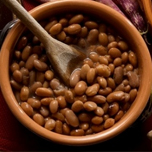
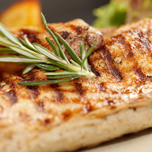
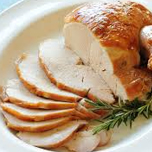
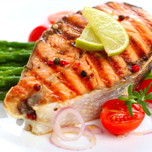
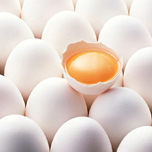
Beans
Great examples are garbanzo beans, kidney beans, and black beans. These small fiber-rich legumes contain nutrients such as folic acid, iron, and magnesium, which can be easily added to salads, stews, and soups.
Chicken
Choose boneless, skinless chicken breast (remember that organic is key) and free range chicken as this will help improve serotonin levels. Avoid fried chicken for this will undo any improvement of serotonin levels.
Turkey
Choose white meat over dark meat for a good source of lean protein. Stay away from ground turkey that isn’t made with turkey breast as other ground turkey contain undesirable parts.
Fish
Choose fish such as salmon, herring, and tilapia to improve Omega-3 fatty acids intake. Remember, choose fish that is labeled as wild-cut as other fish contain unwanted chemicals and hormones that aren’t good for your body.
Egg Whites
This food is high in protein, low in calories, and contains no fat, making it an excellent snack or meal that can keep you satisfied. Remember to always look for organic-free range eggs when shopping.
Fruits and Vegetables
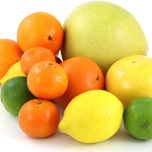
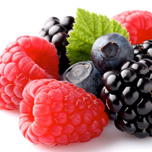
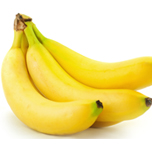
Citrus Fruit
Some great examples are lemons, oranges, and grapefruits--with lemons helping to balance out equilibrium in the body. These fruits contain many antioxidants such as vitamin C, which helps the body against high levels of stress.
Berries
These delectable fruits are high in antioxidants which help protect the body from the harmful effects of stress.
Squash
Squash is an excellent source of beta-carotene, which helps oxygenate the blood; it also contains many other nutrients such as Vitamin C and fiber. This diverse vegetable can be easily added to salads and stir fries. Some great examples are zucchini, butternut squash, and summer squash.
Beet
Beets are full of all types of nutritional benefits, including potassium, iron, and folic acid, which helps reduce inflammation as well as beta carotene.
Bananas
These fruits are a good source of vitamin B6, which is needed for your body to produce melatonin, which helps relaxes the body. Bananas are also rich in Vitamin C and potassium.
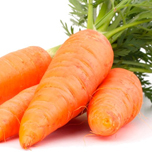
Cabbage
Cabbage is full of vitamin K and bioflavonoids, which helps to reduce inflammation. Green, purple, bok choy, and chinese cabbages are some great examples.
Artichoke
Artichokes lower blood sugar and contain folic acid, magnesium, and potassium as well as help stimulate digestion.
Pineapple
Pineapple contains bromelain, which contains anti-inflammatory properties--properties that are important to have when overcoming chronic stress.
Papaya
This fruit is a great source of bioflavonoid, which is an antioxidant that helps absorb Vitamin C.
Carrot
Orange and sweet, this vegetable is rich in potassium and fiber, which help in digestion. Carrots are also an excellent source of zinc and beta carotene--with beta carotene aiding in the balancing of stress. One of the best ways to get all of the nutritional benefits of carrots is through the daily consumption of freshly juiced organic carrots.
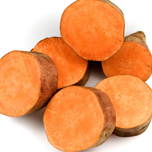
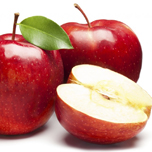
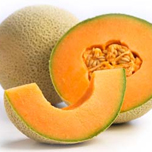
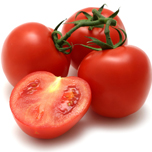
Sweet potato & Yams
Sweet Potatoes and yams are rich in vitamins A, B, C, and E along with beta carotene, which all aid the body when undergoing high amounts of stress. These potatoes make excellent snacks and additions to meals.
Grape
Full of antioxidants, these purple or green fruits make delicious snacks and additions to meals. (Note: Wine and other alcoholic beverages are not good for the body. Although grapes themselves contain many nutritional benefits, the alcohol in wine creates a negative effect to the body’s overall function--especially to those experiencing chronic stress and other related illnesses.)
Apple
This fruit is full of vitamins and minerals as well as fiber that helps lower levels of “bad” (LDL) cholesterol.
Melon
Cantaloupe, honeydew, and watermelon are excellent examples and are good sources of minerals, vitamin C, beta carotene, and folic acid along with compounds that help thin the blood and lower blood pressure. These tasty treats can be added to smoothies, fruit salads, and meals as well as enjoyed raw.
Tomato
These red fruits are full of nutrients such as iron, Vitamin E, and Vitamin C. With antioxidants, such as Vitamin C, helping protect the body from free radicals that are released during stress.
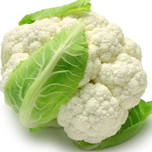
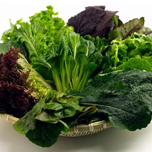
Mushrooms
Mushrooms are an excellent source of Vitamin D and contain many other health benefits, such as lowering blood cholesterol and aiding in stimulating the immune system as well as promoting good eyesight.
Broccoli
As a source of Vitamin C and beta carotene, this vegetable helps to fortify the immune system as well as assists in promoting efficient intestinal function. When eating broccoli, be sure to eat as raw as possible as to gain the most health benefits.
Cauliflower
Cauliflower is an excellent source of pantothenic acid, which is an anti-stress nutrient.
Bell pepper
Yellow, green, and red--especially red and green bell peppers-- are rich in vitamin C as well as other nutrients such as beta carotene, which helps fortifies the immune system--red bell pepper is best known for being full of this nutrient.
Dark Leafy Grrens
These are great nutrient-rich foods and should be included in your daily consumption. Some of the nutrients contained in these greens include vitamins K, C, and E along with fiber, which helps in digestion; dark leafy greens are great sources of antioxidants. Spinach, kale, collards, chard, and bok choy are all excellent examples.
Whole Grains and Seeds
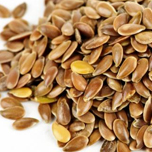
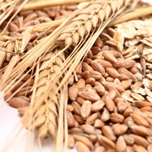
Flax Seed
High in fiber and Omega-3 fatty acids, flax seeds is full of vitamins, phytonutrients, and protein. Its health benefits include support to the immune system, excellent cholesterol levels and digestion. When buying, remember to only purchase whole flax seeds as ground flax seeds lose the essential nutritional benefits. *Flaxseed is a powerful nutrient-rich food and daily consumption should not exceed 1-2 Tbsp.
Whole Grain Wheat
Whole wheat contains fiber along with an assortment of vitamins and minerals. When buying, remember to buy only wheat labeled as whole grain as other wheat do not have the same nutritional benefits.
Millet
This grain is packed with amino acids, phosphorous, iron, potassium, and manganese. Its high silica contents also helps promote good blood cholesterol. Millet can make an excellent addition to cereals and desserts.
Kamut
Kamut is full of many nutrients including--vitamins E, B1, and B2 along with selenium, magnesium, phosphorous, and zinc. This can be best found in any local health food store in bulk.
Spelt
Spelt is a complex carbohydrate, provides energy, and contains fiber.
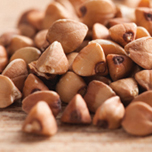
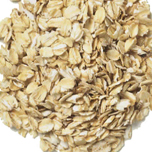
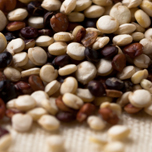
Buckwheat
Rich in rutin (a flavonoid and antioxidant), buckwheat improves blood circulation, lowers blood pressure, and reduces hypertension. This can be used as a cereal and can be included in baked goods.
Oat
This versatile grain can be added to smoothies and replace breadcrumbs along with making a great breakfast selection. Be sure to stay away from instant flavored oatmeal as these contain large amounts of refined sugar and other added unwanted ingredients. Oats are an excellent choice because they help to regulate blood glucose and insulin levels, making you feel fuller for a longer period of time.
Quinoa
Quinoa is a great source of nutrients--calcium, phosphorus, and iron being a part of it as well as vitamin E and most of the vitamins B--it is also contains protein. This versatile seed can replace oats for oatmeal, be served as a salad, and can be added to thicken soups.
Hemp
Hemp contains protein and can be added to desserts as well as cereal with hemp milk.
Healthy Fats
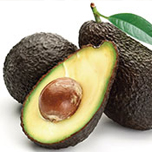

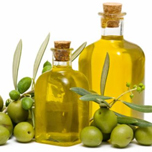
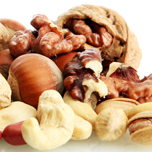
Avocado
Full of monounsaturated fats or “healthy fats”, the avocado has the ability to lower blood cholesterol. *Those taking blood thinners should check with their doctor before eating this fruit as it may conflict with medications.
Flax Oil
Flaxseed oil is rich in Omega-3 fatty acids, which is important for the human body. When shopping for flaxseed oil, remember to choose oil labeled with lignan and is the refrigerated kind.
Olive Oil
Rich in healthy fats, olive oil also aids in reducing LDL cholesterol and raising HDL (“good”) cholesterol. When buying, be sure to purchase oil labeled as extra virgin-cold pressed as it contains more antioxidants than olive oil not labeled as cold pressed. Be sure to consume in moderation.
Nuts
Nuts contain healthy fats and protein as well as magnesium and fiber. Be sure to eat unsalted raw nuts which contain no added ingredients. Nuts are also very easy to snack on so be sure to watch consumption as too much is not ideal if you are trying to lose weight. A reasonable amount is a scant handful.
Coconut Oil
This special oil contains Medium-chain fatty acids which are necessary for our body’s daily functions and has properties that make it able to not produce dangerous trans fatty acids. This can be spread on breads and added to any desserts. For the best health benefits, look for the coconut oil labeled as virgin.
Seeds
Raw sunflower seeds are an excellent example as they have a high content of Vitamin E and Magnesium, both of which help the immune system. Magnesium has also been shown to relax nerve cells.
Coconut Water
Coconut water is full of all sorts of minerals including the B vitamins, potassium, and the trace minerals. Those suffering from chronic stress are in special need of this water as many critical vitamins are lost during chronic stress.
©2021 Phytotherapi. All rights reserved.
